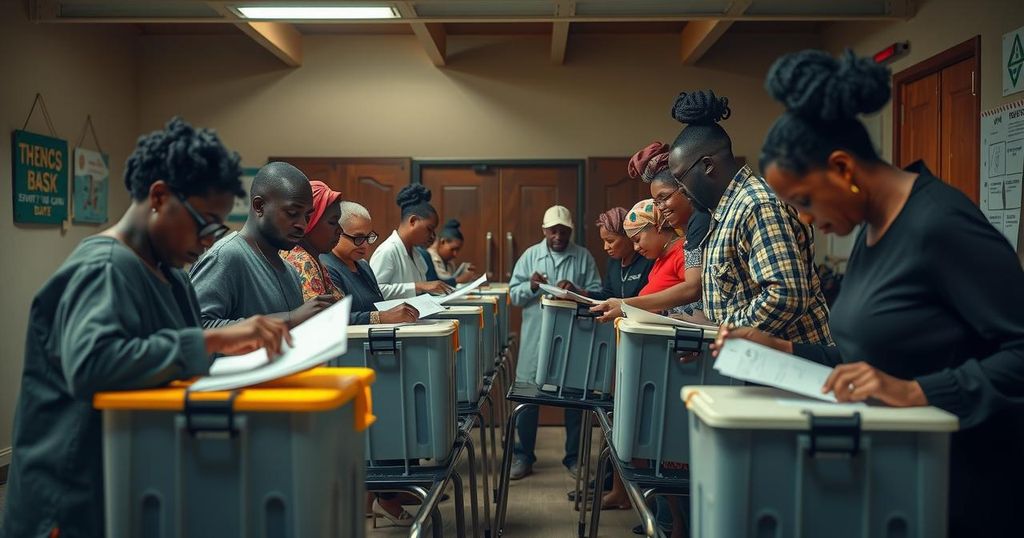Namibia Reopens Polls Amid Electoral Controversy and Opposition Outcry
Namibia has reopened polling stations after initial elections were marred by significant delays and technical issues which frustrated many voters. Opposition parties criticized the electoral process, alleging disenfranchisement and calling for a halt to voting. The country’s political stability faces a test as younger voters express dissatisfaction with the ruling SWAPO party, amid a competitive electoral climate.
Namibia is witnessing a re-opening of polling stations, allowing citizens a second chance to vote following significant logistical issues that had marred the initial election process. On Wednesday, long wait times—some exceeding 12 hours—left many of the 1.5 million registered voters frustrated, leading to accusations of a fraudulent process by opposition parties seeking to challenge the long-standing dominance of the ruling South West Africa People’s Organisation (SWAPO). Observers from the African Centre for Governance pointed out that voters abandoned queues due to mechanical failures and extreme weather conditions, highlighting serious flaws in the election administration.
The Electoral Commission of Namibia (ECN) faced criticism for its lack of clear communication regarding the reopening of polling stations, which added to the unrest. Protesters gathered outside the observers’ meeting site, voicing their dissatisfaction with placards proclaiming the elections were neither free nor fair. Opposition party representatives, including those from the Independent Patriots for Change (IPC), expressed distrust in the electoral procedures and suggested a deliberate attempt to disenfranchise voters.
This turbulence occurs amidst rising dissatisfaction, particularly among younger voters, exacerbated by high unemployment and perceived socio-economic inequalities. With a significant portion of the electorate under 35 years old, the IPC’s candidate, Panduleni Itula, represents a potential shift in leadership away from SWAPO’s long-standing authority, with vice-president Netumbo Nandi-Ndaitwah potentially becoming the first woman to lead Namibia if successful in the upcoming election. Despite this, the voting process remains fraught with challenges as only one polling station was reopened on Friday, indicating ongoing difficulties in ensuring a smooth electoral experience for voters.
The political landscape in Namibia is characterized by the long-standing rule of the South West Africa People’s Organisation (SWAPO), which has been in power since the nation gained independence in 1990. Recent elections have raised concerns regarding the electoral process, marked by significant logistic and technical failures that hindered voter participation. This has led to increased tensions as opposition parties call for reforms and express their discontent with the electoral administration. The context of high youth unemployment and a younger generation’s detachment from traditional political loyalties puts pressure on the ruling party amid a crucial election cycle.
In summary, Namibia’s electoral process has been significantly challenged due to logistical failures, prompting a re-opening of polls for voter participation. As dissatisfaction grows among opposition parties and younger voters, the credibility of the SWAPO party’s long-standing rule is put to the test. Observers and citizens alike are demanding reforms and clearer communication from electoral authorities to ensure a fair and transparent voting process. The upcoming elections will be crucial in determining the future political landscape of Namibia.
Original Source: www.france24.com




Post Comment